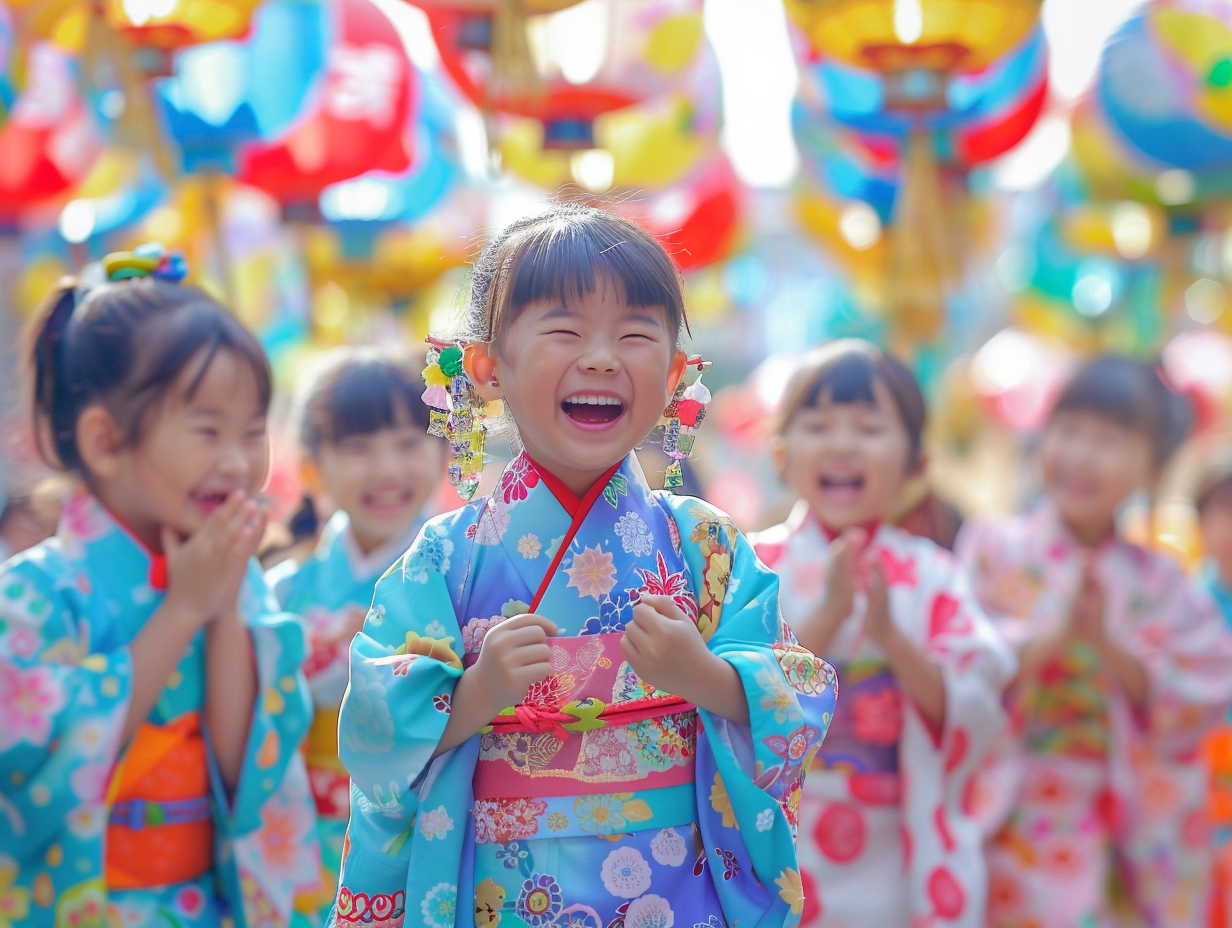
Japan’s Low Happiness Levels: A Disappointing National Trait
Recent surveys reveal that Japan ranks among the lowest in happiness levels globally, with a 13% decline over the past 13 years. Children’s happiness is also low, ranking second-worst. Experts suggest that the Japanese tendency to compare oneself to others and strive for “average” may contribute to this trend. (49語)
日本語訳
「日本の幸福度の低さ:がっかりな国民性」
最近の調査で、日本の幸福度は世界的に最低ランクにあり、過去13年間で13%低下していることが明らかになった。子供の幸福度も低く、下から2番目の順位だった。専門家は、他人と比較し「平均」を目指す日本人の傾向がこの傾向に寄与している可能性を示唆している。

単語・熟語チェック
・happiness 幸福、幸せ
・level 水準、レベル
・globally 世界的に
・decline 低下、衰退
・rank 順位づける
・worst 最悪の
・tendency 傾向、性質
・compare ~を比較する
・strive 努力する、奮闘する
・average 平均
単語解説
・happiness
⇒幸福、幸せという意味の名詞。形容詞は happy。語源は中英語の hap(幸運)+ -ness(状態)に由来します。Happiness is not having what you want, but wanting what you have.(幸福とは欲しいものを手に入れることではなく、持っているものに満足することだ)というような格言にもよく使われる言葉です。
・globally
⇒世界的に、地球規模でという意味の副詞。形容詞の global(世界的な)+ -ly(副詞を作る接尾辞)から成ります。経済のグローバル化(globalization)などの用語でもおなじみの語根です。
・decline
⇒低下する、衰退するという意味の動詞、また低下、衰退という意味の名詞。語源はラテン語の de-(下に)+ clinare(傾ける)に由来し、「下り坂をたどる」というニュアンスがあります。経済の衰退(economic decline)などの表現でもよく使われます。
・strive
⇒努力する、奮闘するという意味の動詞。strive for(~のために努力する)や strive to do(~しようと努力する)などの形でよく使われます。名詞形は strife で「闘争」「争い」という意味になります。語源は古フランス語の estriver(争う)に由来します。
・average
⇒平均という意味の名詞、また平均の、普通のという意味の形容詞。ラテン語の habēre(持つ)が語源で、本来は「船荷を分担する」という意味でした。数学用語としての平均(arithmetic mean)を表すのによく使われます。above/below average(平均以上/以下)などの表現もよく見かけます。
原ちゃんチェック
幸福度ランキングの常連国と比べると、日本の順位の低さが際立っていますね。欧米の個人主義的な価値観とは対照的に、日本では「出る杭は打たれる」的な平均志向が根強いのかもしれません。
でも幸せの基準は十人十色。他人と比べるのではなく、自分なりの人生の目標を持つことが大切だと思います。「みんなと同じでなきゃ」というプレッシャーから自由になれば、もっと自分らしい幸せを追求できるはず。
子供の幸福度の低さも気がかりです。成績至上主義の教育や、多様性の乏しい社会風土が影響しているのでしょうか。次世代を担う子供たちには、のびのびと個性を伸ばせる環境が必要ですよね。
日本人が本当の意味で幸せを実感できる社会を目指すためには、画一的な価値観を見直し、一人ひとりの多様性を認め合うことが大切だと感じます。「平均」にとらわれず、自分らしい人生を歩める社会になることを願っています。
関連URL
World Happiness Report 2024 | The World Happiness Report
原田英語深堀りチェック
【幸福度ランキングに関する英単語やフレーズ20】
1. Gross National Happiness (GNH) [国民総幸福量] – A holistic measure of a nation’s well-being and prosperity. (国の幸福と繁栄を包括的に測る指標。)
2. Life satisfaction [生活満足度] – The degree to which individuals are content with their overall life circumstances. (個人が自分の全体的な生活状況にどの程度満足しているかを示す度合い。)
3. Subjective well-being [主観的幸福感] – People’s self-reported assessments of their happiness and life satisfaction. (人々が自己申告する幸福度と生活満足度の評価。)
4. Quality of life [生活の質] – The general well-being of individuals and societies, encompassing various factors such as health, education, and environment. (健康、教育、環境など、様々な要因を包含する個人と社会の全般的な幸福度。)
5. World Happiness Report [世界幸福度レポート] – An annual publication that ranks countries by their happiness levels. (幸福度レベルによって国をランク付けする年刊の出版物。)
6. Social support [社会的支援] – The perception and actuality that one is cared for and has assistance available from others. (他者から気にかけられ、支援を得られるという認識と実際の状況。)
7. Healthy life expectancy [健康寿命] – The average number of years a person can expect to live in full health. (人が完全に健康な状態で生きられると期待される平均年数。)
8. Generosity [寛大さ] – The quality of being kind and generous, often measured by charitable donations and volunteering. (慈善寄付やボランティア活動で測定されることが多い、親切で寛大であること。)
9. Freedom to make life choices [人生の選択の自由] – The ability to make decisions about one’s life without external constraints. (外的な制約なしに自分の人生について決定を下すことができること。)
10. Perceptions of corruption [腐敗の認識] – The extent to which people believe corruption is widespread in their government and institutions. (人々が自国の政府や機関における腐敗が広まっていると信じている度合い。)
11. Work-life balance [ワークライフバランス] – The equilibrium between time spent on work and personal life. (仕事と個人の生活に費やす時間のバランス。)
12. Social cohesion [社会の結束] – The strength of relationships and the sense of solidarity among members of a community. (コミュニティのメンバー間の関係の強さと連帯感。)
13. Positive affect [ポジティブ感情] – The experience of pleasant emotions such as joy, happiness, and contentment. (喜び、幸福、満足などの快適な感情を経験すること。)
14. Negative affect [ネガティブ感情] – The experience of unpleasant emotions such as sadness, anger, and fear. (悲しみ、怒り、恐れなどの不快な感情を経験すること。)
15. Trust in institutions [制度への信頼] – The degree to which people have confidence in their government, legal system, and other societal institutions. (人々が自国の政府、法制度、その他の社会制度に対して持つ信頼の度合い。)
16. Social progress [社会の進歩] – Improvements in the well-being of individuals and societies over time. (時間とともに個人と社会の幸福度が向上すること。)
17. Sustainable development [持続可能な開発] – Economic and social development that meets the needs of the present without compromising the ability of future generations to meet their own needs. (将来の世代が自らのニーズを満たす能力を損なうことなく、現在のニーズを満たす経済的および社会的な開発。)
18. Emotional well-being [感情的幸福] – A state of positive emotions and life satisfaction. (ポジティブな感情と生活満足度の状態。)
19. Happiness inequality [幸福格差] – The gap between the happiest and least happy individuals within a society. (社会内で最も幸せな個人と最も幸せでない個人との間の格差。)
20. Eudaimonic well-being [ユーデモニック・ウェルビーイング] – A sense of meaning, purpose, and self-realization in life. (人生における意味、目的、自己実現の感覚。)






